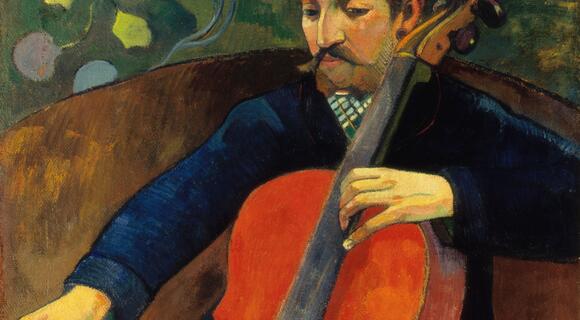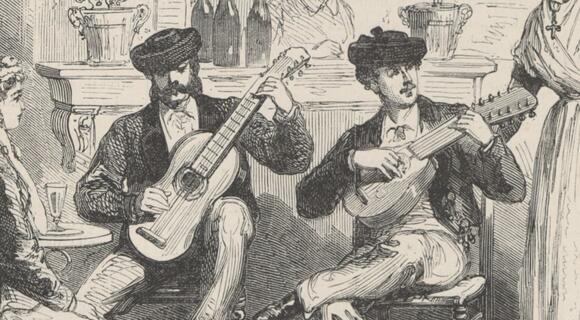Discover the focuses!
A thorough understanding of the history of French music of the 19th century can’t be got from studying the careers of individual musicians and an analysis of the works they composed or performed alone. Available instrumentation (itself burgeoning at the height of an industrial revolution), the artistic way of life in the period (whether in private salons or major concert societies) and the development of new operatic or instrumental genres, are all factors that contribute to a complete picture of the period’s intensely-productive music scene.

The French cello school
The history of the cello in France in the nineteenth century falls into three chapters.

Mandoline
Le premier XIXe siècle français avait connu une « guitaromanie » – mode passagère, mais intense – ; les années 1880 et 1890 voient pour leur part un engouement très étonnant pour la mandoline.

The "tenor" voice
During the 19th century, the tenor voice changed considerably under the combined influence of vocal technique, compositional writing and public taste. These developments in practice and style were introduced by the numerous singing manuals published by the performers themselves.

La mélodie française
La mélodie française – parfois pour deux voix et piano, plus souvent pour un seul chanteur accompagné – représente sans aucun doute le genre le plus élevé dans la hiérarchie des répertoires du XIXe et du premier XXe siècle.

The "ode-symphonie"
Although the “ode-symphonie” is little known today, it was one of the many expressions of Romanticism in music, and much in vogue after 1850.

La musique pour violon et piano à la fin du XIXe siècle
Le répertoire pour violon et piano de la seconde moitié du siècle s’enrichit d’œuvres significatives, stimulées de surcroît par la création de la Société nationale de musique.
